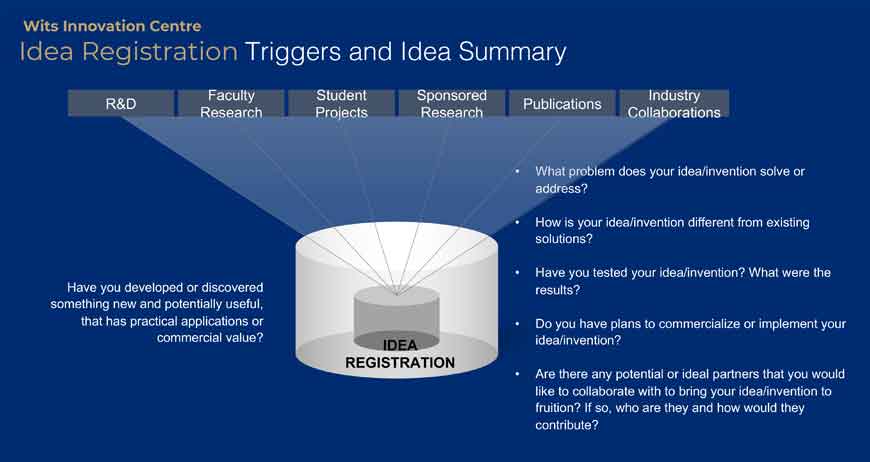
Innovation Support
From research output to impactful solutions. Let us help you!
Innovation Support
From research output to impactful solutions. Let us help you!
Based in the new Wits Innovation Centre (WIC), the Innovation Support unit enables researchers, innovators and entrepreneurs to develop products, processes, and services that impact society for good.
We will assist you, at no cost, on your research-to-products journey by identifying and facilitating the commercialisation of promising technologies developed from Wits research-led, researcher-led and student-led innovation.
We will support you on your journey as you gain skills and experience in understanding markets and business drivers and will share in the spoils in accordance with Wits' policies.
We can help with:
Take the first step today and make contact with our team of scientists, engineers and specialists by completing the
We invite you to be a part of our mission to drive innovation and progress by sharing your groundbreaking ideas. Whether you are a student, faculty member, researcher, or industry collaborator, we want to hear from you.
Do you have a new idea that emerged from your R&D or sponsored research? Have you recently published a paper that could lead to new discoveries? Are you working on a student project that has the potential to change the world? We want to know about it!
We believe that the greatest ideas come from collaboration and sharing diverse perspectives. By bringing together the collective brainpower of our university community, we can drive innovation and solve some of the world's most pressing challenges.
So don't hesitate – share your ideas with us today! Together, we can make a difference and shape the future for the better.
